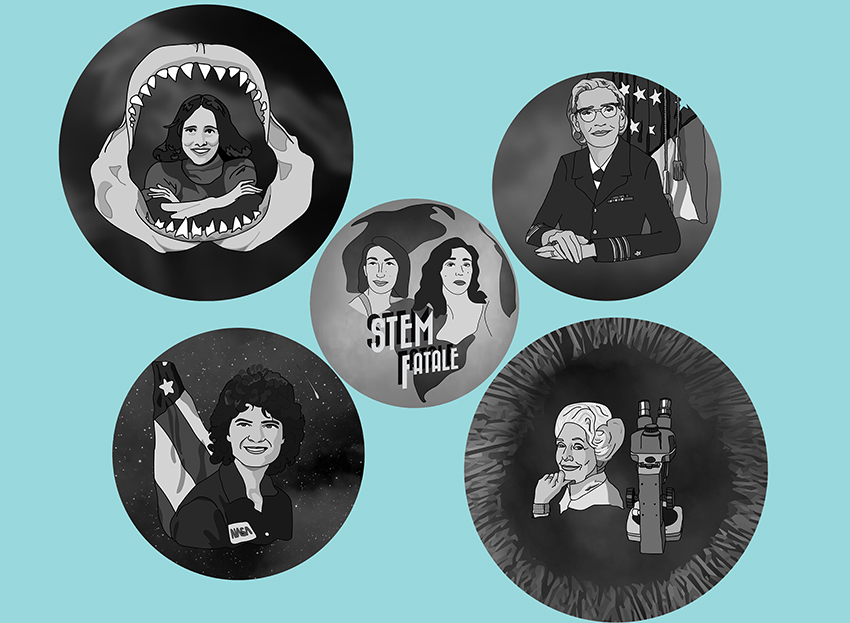You’ve heard of Albert Einstein. You’ve heard of Stephen Hawking. But have you heard of Eugenie Clark or Sally Ride?
While these female scientists may not be household names, Emlyn Resetarits and Emma Dietrich, both UT graduate students in the Ecology, Evolution and Behavior program, aim to challenge that with their new podcast, STEM Fatale.
Every STEM Fatale episode showcases a woman who has made major contributions to a STEM field. In their latest episode, “No Payne, No Gain,” Resetarits and Dietrich discuss astrophysicist Cecilia Payne-Gaposchkin, who discovered that stars were mainly made of hydrogen and helium but was not credited for her work.
Resetarits and Dietrich said they started the podcast to raise attention to the lack of women discussed in popular science history.
“You always hear about the same famous male historical scientists and you rarely ever hear about women scientists,” Dietrich said. “We just wanted to learn more about them and we wanted to share what we were learning with other people.”
Resetarits and Dietrich said prior to the podcast, they did not know about most of the women they covered.
“As a woman, I felt guilty not knowing a lot of these woman or their historical contributions, because I never went out and sought them,” Resetarits said. “It’s not thrown in your face like it is with male scientists.”
Dietrich added that most of the women scientists they’ve discussed faced great barriers to success. She said she thinks more people should know about their stories.
“We’ve talked about two women that had to escape from Nazis and they still were successful scientists,” Dietrich said. “I think a lot of them are more successful than most men of their time, yet we still don’t know about them and that’s kind of shocking.”
This may have to do with the fact that for most of history, women often accepted supporting roles in science, said Jill Marshall, associate professor in science and mathematics education in the Department of Curriculum and Instruction.
“There have been limitations to women’s participation in science, so you see fewer women who had the chance to do science and get it spread out,” Marshall said.
Many of the obstacles women scientists faced in history can still be seen in today’s society, Resetarits said.
“You see these women’s struggles and what they’ve had to deal with … A lot of that still relates to the struggles women deal with now in academia,” Resetarits said. “There are a lot of things we can take away from women who’ve already tread that path.”
Emily Rees, a UT graduate student in the Plant Biology program, listens to STEM Fatale and said she is inspired by many of the scientists discussed in the podcast.
“I think a lot of these women deserve more recognition,” Rees said. “After learning about their contributions, I am kind of amazed and ashamed that I didn’t know who they were. It’s very inspiring learning about all of these different female scientists and the perseverance they had in order to study what they loved.”
Resetarits and Dietrich said they hope their podcast can reach a larger audience and inspire listeners to learn more about notable women in STEM.
“We’ve tried to make a podcast that we enjoy making and we hope all different types of people listen to the podcast, even men,” Resetarits said. “We hope it’s interesting to anyone who wants to learn about historical women in science.”















